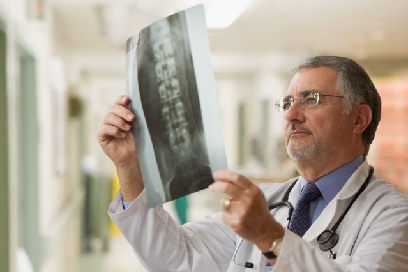Cauda Equina Syndrome is not a life-threatening condition but if diagnosis and treatment are delayed the life changing effects can be devastating for patients and their loved ones.
Cauda Equina Syndrome is a spinal surgical emergency that can lead to lower limb paralysis and loss of bowel, bladder and sexual function if not assessed and treated urgently.
The Syndrome occurs when the nerve roots that emerge from the end of the spinal cord at L2/L3 are compressed to such a degree that function and sensation to the parts of the body they serve become compromised.
This can happen for many reasons – the most common is a herniated, slipped or prolapsed disc, but it can also occur due to other reasons such as:
- Spinal lesions or tumours
- Spinal infections or inflammation
- Spinal stenosis
- Major injuries to the lower back
- Spinal arteriovenous deformities
- Spinal haemorrhages
- Spinal surgery complications
- Spinal anaesthesia
There are a number of key Red flag symptoms that would point to a Cauda Equina Syndrome diagnosis. Depending on the degree of nerve damage, these could include:
- Severe lower back pain
- Weakness or numbness in the lower limbs
- Sciatica-like pain in one or both legs
- Difficulty walking, leg weakness
- Alteration in urinary function, such as difficulty urinating or reduced flow
- Inability to know when you need to empty your bladder , loss of bladder or bowel control
- Numbness around the ‘saddle’ area (buttocks, anus and genitals)
- Sexual dysfunction
- Other neurological deficits
If your GP suspects you have Cauda Equina Syndrome they should refer you for an emergency MRI scan and arrange a consultation with a spinal surgeon straight away.
Cauda Equina Syndrome is a medical emergency and requires immediate action.
Recovery from Cauda Equina Syndrome is significantly increased if surgery takes place within 24 hours of the onset of symptoms as a delay can lead to permanent damage to the root nerves.
The only way to treat Cauda Equina Syndrome is through surgery. This usually involves a laminectomy to remove sections of vertebra to relieve the pressure on the cauda equina root nerves.
Recovery from Cauda Equina Syndrome depends on many factors including the initial damage to the nerves and how quickly you underwent surgery. Surgery can be deemed successful if it prevents further deterioration but you may be left with permanent issues, such as bladder and bowel problems, mobility issues and chronic pain.
Cauda Equina Syndrome can cause permanent damage to the bladder and bowels, sexual function and sensation, chronic pain and fatigue and permanent lower body paralysis.
The Cauda Equina Champions Charity is here to help you and your family with every stage of your journey to recovery.
https://www.championscharity.org.uk/cauda-equina-syndrome/treatment-and-recovery/


